MAEB’s 2019 Prototype Ecohouse would not be possible without the sponsorship and support of the many local industries and professionals who volunteered their time, experience and equipment towards realizing the Prototype Tiny House. From employing advanced analysis strategies to solve complex structural joinery to thoughtful furniture pieces which elevate the spatial experience, the Tiny House had advocates through every phase of assembly and installation.
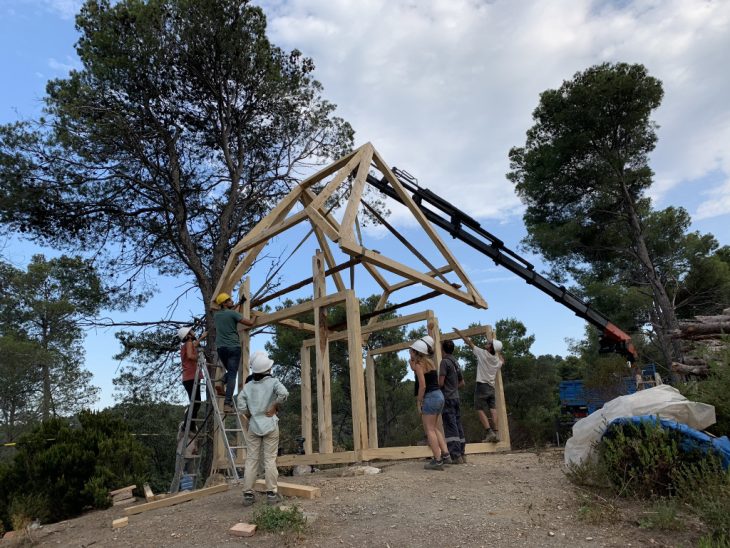
Visoren is a long-standing supporter of MAEB. a private company founded in 2002, offers functional affordable housing to citizens. The company objectives include building, promoting, and managing social housing rents in order to respond to current market demands.
All Visoren buildings are constructed under the building and sustainability parameters that enhance energy savings and a reduction in the cost of supplies. In addition, the company aims to build homes with all the eco-efficiency criteria in addition to providing avant-garde designs and functional housing.
As the MAEB Prototype Tiny House aligns with many of the principles and tenets of Visoren, the company donated a large cash amount which kickstarted the entire fabrication, processing and assembly process. In many ways the donation provided the support needed to advance the diverse efforts and initiatives needed to realize the project.
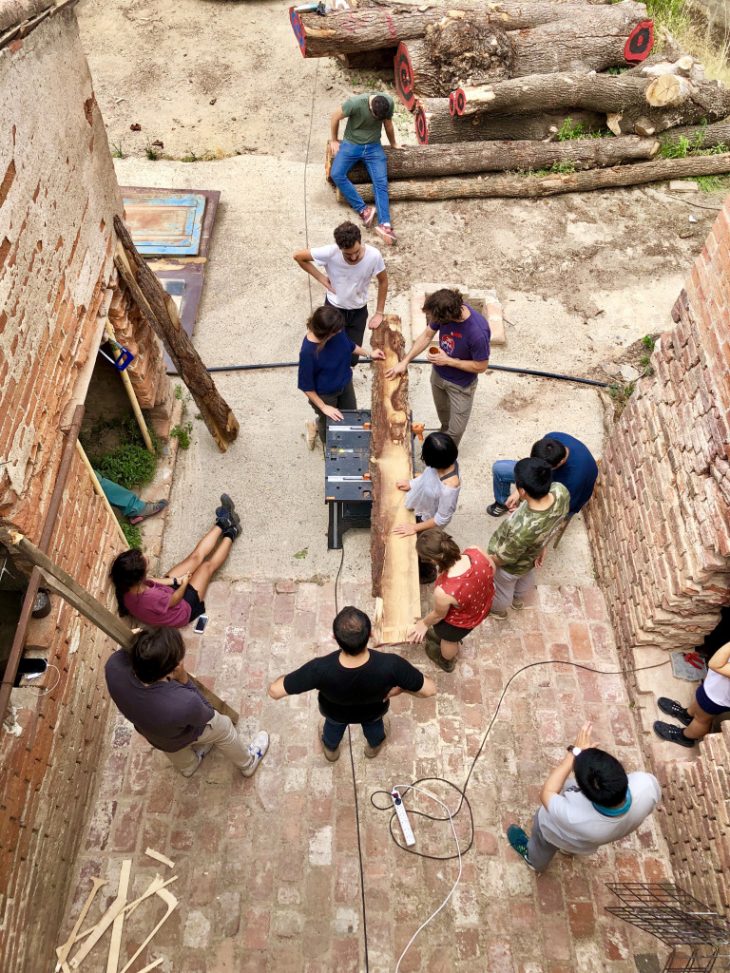
Tallfusta is also a long-standing supporter of the MAEB. Tallfusta focuses on sustainable solutions using timber structures in construction. With more than 75 years of experience in the wood sector, Talffusta offers technical advice, technology and pioneering production processes. The MAEB team was invested in making use of a timber harvest of oak and pine from the Colserolla Park earlier in the year. Accordingly, Tallfusta’s expertise was key in solving technical issues related to complex structural joints from fresh pine which had not yet completely dried. Tallfusta sponsored the project both through technical advice and experience, but also cut all the timber structural pieces in their factory so the joints would align seamlessly and without the necessity of using secondary support pieces such as steel plates or metal joints.
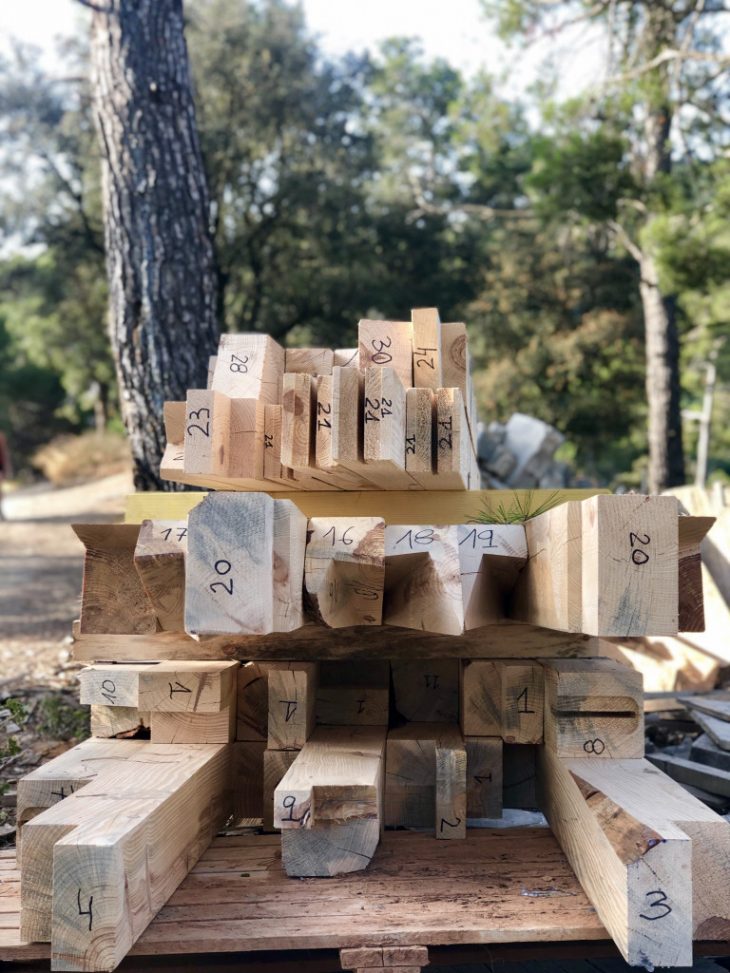
Introduced through MAEB faculty and consultant Oscar Aceves, Saltoki soon became a key sponsor for the project. Volunteering support, equipment and consultation for various stages and aspects of the metabolic structure of the tiny house, Saltoki provided solutions every step of the way. The metabolic system incorporates water, energy and information into one integrated system that serves the overall design. The sponsored metabolic equipment is integrated into the envelope system, and accessible from the outside. The current prototype is designed to work off-grid with a photovoltaic installation of 900 watts. Powerful enough to charge the tiny house’s batteries to store excess energy and then used for three days without sun.

The prototype Tiny House uses a diverting composting dry toilet, reducing the daily average of water consumption to 62L per day. The toilet composts in situ with the help of earthworms. The final composted material is a rich fertilizer extracted every three years. Urine is mixed with water to compensate for the levels of nitrogen and oxygen. This mixture flows into the grey water system and treated by a garden before being released into the soil The water system is sized for 14 days of self-sufficiency before the water tanks need refilling. Rainwater harvesting is offered as an additional option depending on the amount of water that can be captured. The toilet has been showcased for the first time in the MAEB 2019 Prototype Ecohouse, and was fully sponsored and installed by Permapreta.
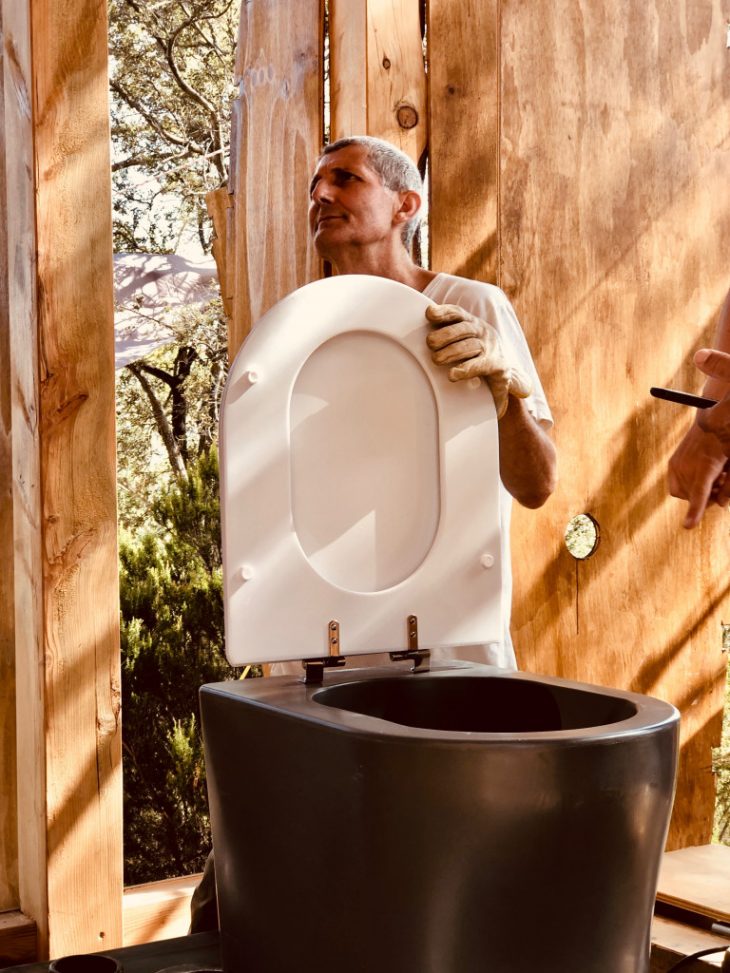
Laura Halminen, the founder of Saneseco which sells and distributes dry toilet options, connected the MAEB team both with Permapreta who sponsored the dry toilet option that was used in the prototype house, as well as Alter Entorn and Distribucio Sostenible. Alter Entorn provided a Bokashi Compost bucket for the kitchen which accomplishes first stage fermentation of waste which is then ready to be placed in the dry toilet. They also provided all cleaning supplies for the house. Distribucio Sostenible partially sponsored all the thermal and water insulation used in the prototype house.
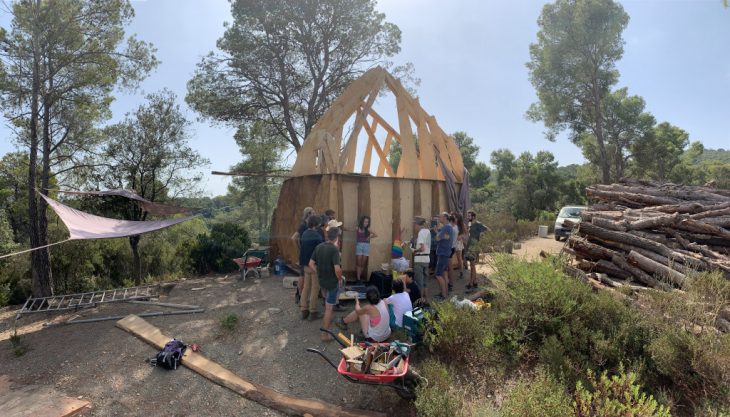 Many other companies, industries and professionals also volunteered support and expertise along the way towards making this ambitious project possible. Below is a list of all sponsors, consultants and volunteers on this project.
Many other companies, industries and professionals also volunteered support and expertise along the way towards making this ambitious project possible. Below is a list of all sponsors, consultants and volunteers on this project.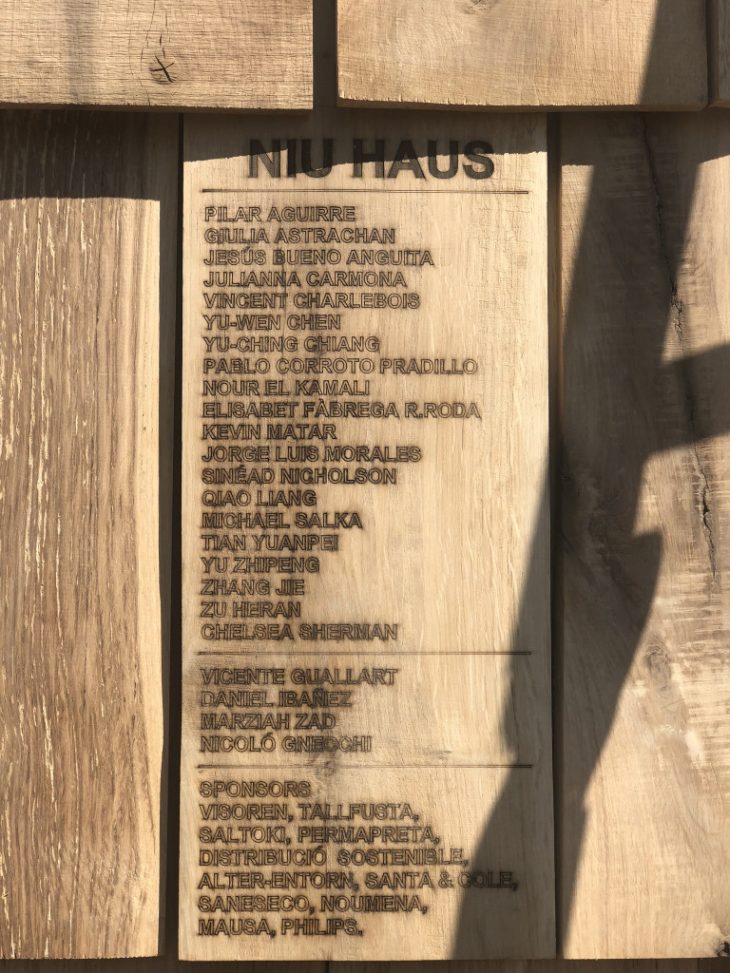 Thank you to our Sponsors Visoren, Tallfusta, Saltoki, Premapreta, Distribució Sostenible, Alter-Entorn, Saneseco, Santa & Cole, Noumena, Mausa, Philips.
Thank you to our Sponsors Visoren, Tallfusta, Saltoki, Premapreta, Distribució Sostenible, Alter-Entorn, Saneseco, Santa & Cole, Noumena, Mausa, Philips.
Consultation Oscar Aceves, Miquel Rodriguez, Jochen Scheerer, Luis Casado, Gustavo Torralbo, Laura Halminen, Nicu Pribago, GuillemCamprodon, Rodrigo Aguirre, Luis Sola, Gustavo Abreu
Support and Assistance
Valldaura Labs Staff and Faculty // Laia Pifarré, Marziah Zad, Nicolò Gnecchi, Jonathan Minchin. Jose Antonio Riosalido, Xavier Molons, Jordi Ubach, Francesc Val.
IAAC Fablab Staff // Mikel Llobera, Ricardo Valbuena, Alaa Al Baroudi.
Thanks to Volunteers Chelsea Sherman, Seçil Afs?ar, Pan Youjian, Tristan Copley, Banjaman Scatt, Rutvij Patha, Alejandro Caballero, Demi Pradolin, Judy Mahfouz, Alec Nicholson